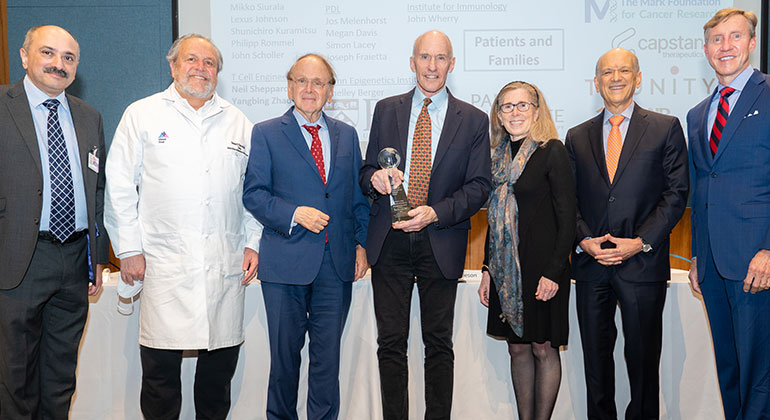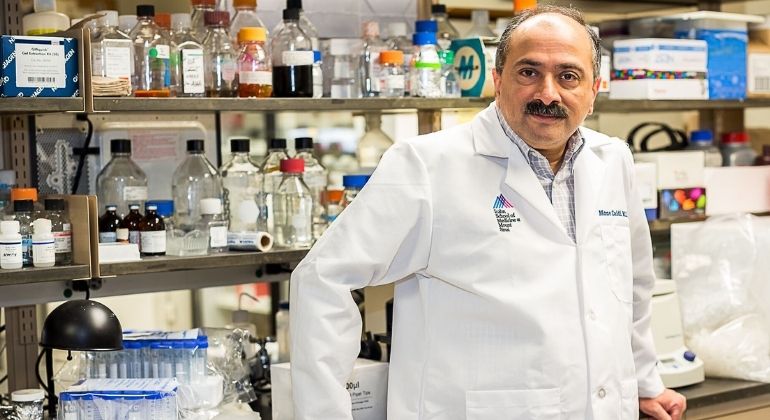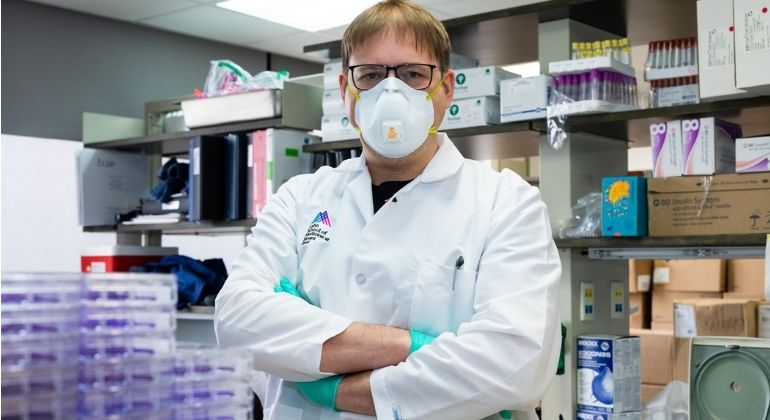Study Finds Majority of Pharmaceutical Ads Do Not Adhere to FDA Guidelines
Dr. Deborah Korenstein, Associate Professor of Medicine, led the study of pharmaceutical advertisements in biomedical journals.
A study led by Mount Sinai School of Medicine researchers of 192 pharmaceutical advertisements in biomedical journals found that only 18 percent were compliant with Food and Drug Administration (FDA) guidelines, and over half failed to quantify serious risks including death. The study is published online today in the journal Public Library of Science (PLoS) One.
"Marketing research has consistently shown that journal advertising is the most profitable form of drug marketing, with an estimated return on investment of five dollars for every dollar spent," said Dr. Deborah Korenstein, lead author of the study and Associate Professor of Medicine at Mount Sinai School of Medicine. "Our study, the first in nearly 20 years to provide a systematic assessment of the adherence of US advertisements to FDA guidance, shows that the current system is not in the best interest of the health of the public."
Researchers performed a cross-sectional analysis of prescription pharmaceutical advertisements published in nine journals in November 2008. They evaluated adherence to FDA standards and the presence of content that is important for physicians to use when safely prescribing the drugs. Of the 192 advertisements for 82 unique products, only 15 fully adhered to all 20 FDA Prescription Drug Advertising Guidelines. In addition, 57.8 percent of the advertisements did not quantify serious risks, 48.2 percent lacked verifiable references, and 28.9 percent failed to present adequate efficacy quantification.
"The limited resources of the FDA’s Division of Drug Marketing and Advertising are a major barrier to successful regulation of the pharmaceutical industry’s multi-billion dollar marketing budget," said Dr. Korenstein. "We are hopeful that an update in FDA regulations, with increased emphasis on the transparent presentation of basic safety and efficacy information, might improve the quality of information provided in physician-directed pharmaceutical advertisements."
About The Mount Sinai Medical Center
The Mount Sinai Medical Center encompasses both The Mount Sinai Hospital and Mount Sinai School of Medicine. Established in 1968, Mount Sinai School of Medicine is one of the leading medical schools in the United States. The Medical School is noted for innovation in education, biomedical research, clinical care delivery, and local and global community service. It has more than 3,400 faculty in 32 departments and 14 research institutes, and ranks among the top 20 medical schools both in National Institutes of Health (NIH) funding and by U.S. News & World Report.
The Mount Sinai Hospital, founded in 1852, is a 1,171-bed tertiary- and quaternary-care teaching facility and one of the nation’s oldest, largest and most-respected voluntary hospitals. In 2011, U.S. News & World Report ranked The Mount Sinai Hospital 16th on its elite Honor Roll of the nation’s top hospitals based on reputation, safety, and other patient-care factors. Of the top 20 hospitals in the United States, Mount Sinai is one of 12 integrated academic medical centers whose medical school ranks among the top 20 in NIH funding and U.S. News & World Report and whose hospital is on the U.S. News & World Report Honor Roll. Nearly 60,000 people were treated at Mount Sinai as inpatients last year, and approximately 560,000 outpatient visits took place.
For more information, visit http://www.mountsinai.org/.
Find Mount Sinai on:
Facebook: http://www.facebook.com/mountsinainyc
Twitter @mountsinainyc
YouTube: http://www.youtube.com/mountsinainy
About the Mount Sinai Health System
Mount Sinai Health System is one of the largest academic medical systems in the New York metro area, with 48,000 employees working across seven hospitals, more than 400 outpatient practices, more than 600 research and clinical labs, a school of nursing, and a leading school of medicine and graduate education. Mount Sinai advances health for all people, everywhere, by taking on the most complex health care challenges of our time—discovering and applying new scientific learning and knowledge; developing safer, more effective treatments; educating the next generation of medical leaders and innovators; and supporting local communities by delivering high-quality care to all who need it.
Through the integration of its hospitals, labs, and schools, Mount Sinai offers comprehensive health care solutions from birth through geriatrics, leveraging innovative approaches such as artificial intelligence and informatics while keeping patients’ medical and emotional needs at the center of all treatment. The Health System includes approximately 9,000 primary and specialty care physicians and 11 free-standing joint-venture centers throughout the five boroughs of New York City, Westchester, Long Island, and Florida. Hospitals within the System are consistently ranked by Newsweek’s® “The World’s Best Smart Hospitals, Best in State Hospitals, World Best Hospitals and Best Specialty Hospitals” and by U.S. News & World Report's® “Best Hospitals” and “Best Children’s Hospitals.” The Mount Sinai Hospital is on the U.S. News & World Report® “Best Hospitals” Honor Roll for 2024-2025.
For more information, visit https://www.mountsinai.org or find Mount Sinai on Facebook, Instagram, LinkedIn, X, and YouTube.

Researchers Identify Potential Target for Treatment Among Patients With Type 2 Diabetes
Aug 04, 2022 View All Press Releases
Mount Sinai Researcher Receives Prestigious International Award
Jul 06, 2022 View All Press Releases



